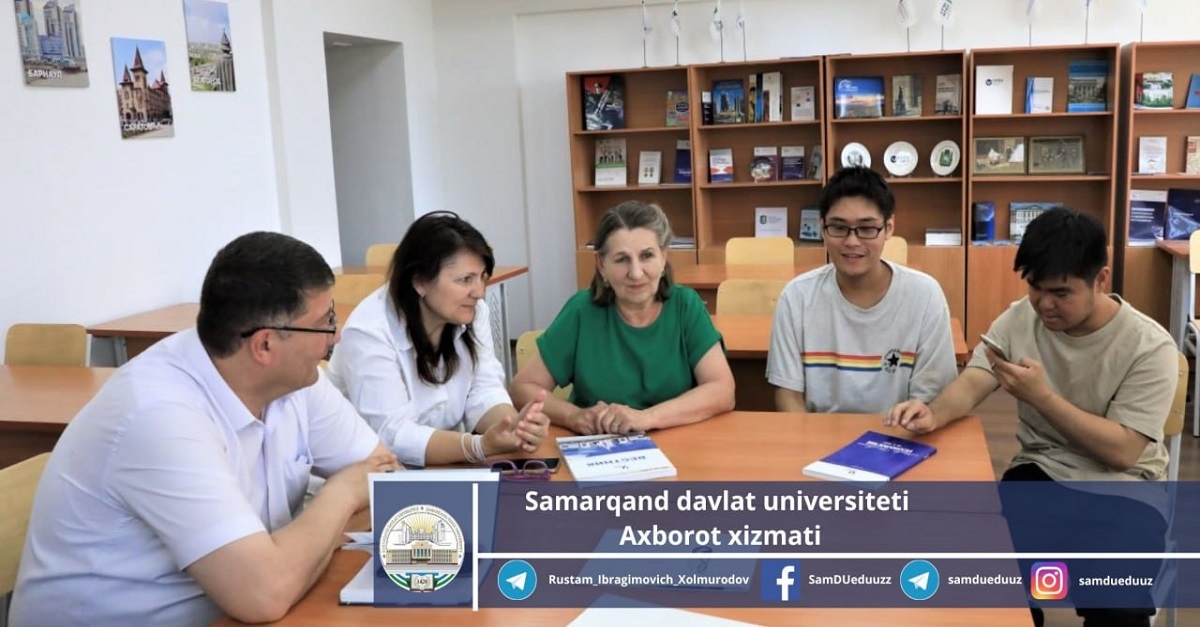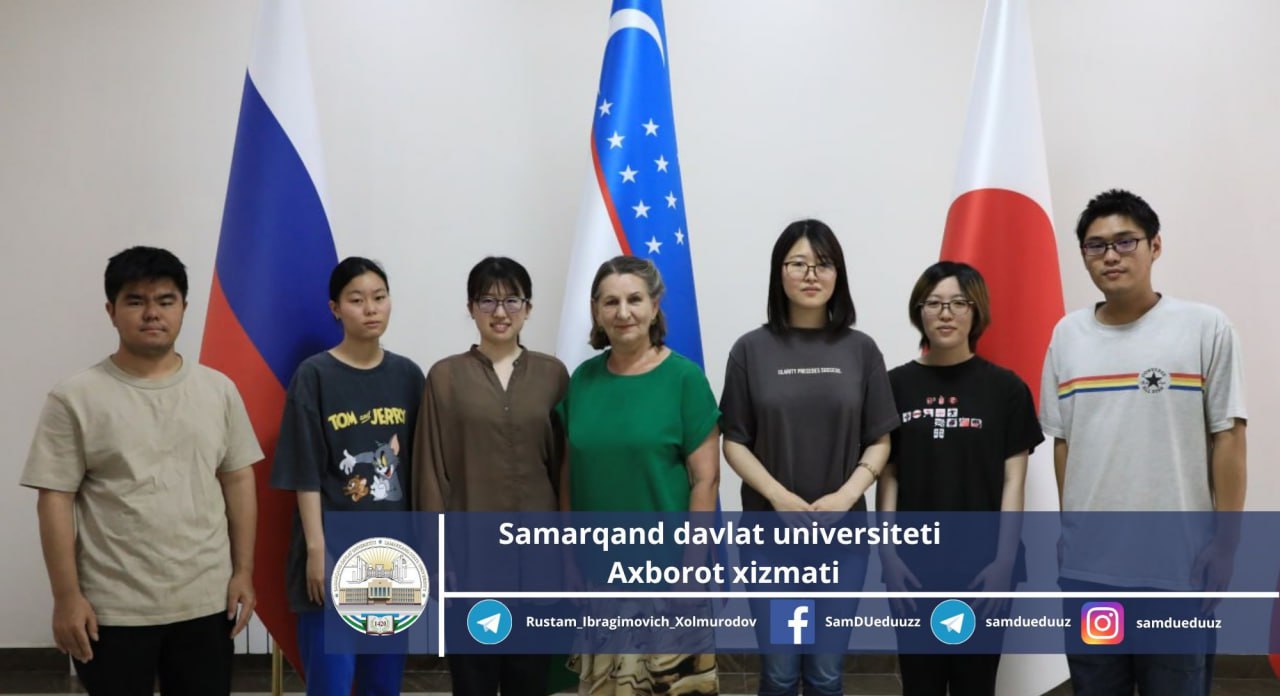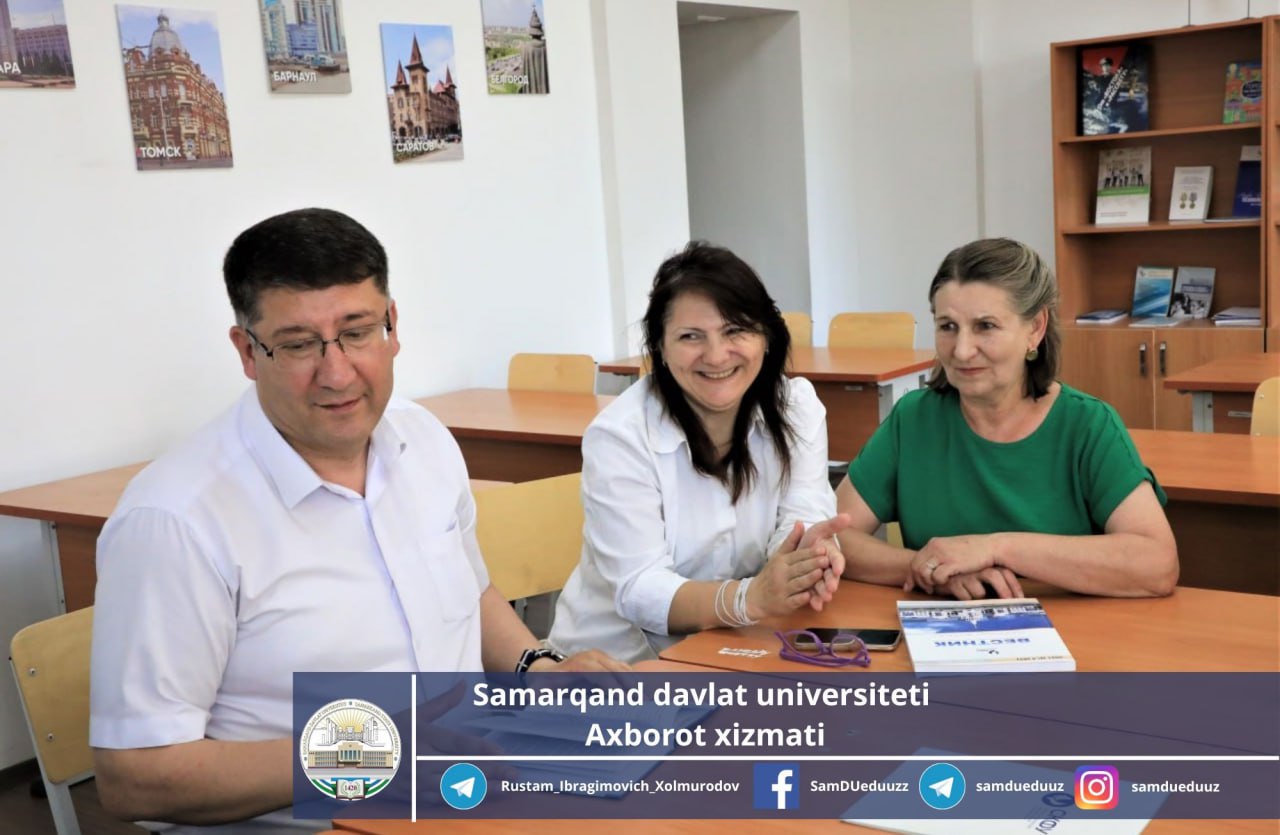Japanese students study Russian in Samarkand

The Russian language is one of the most widespread languages in the world, it unites not only the peoples of Russia and the CIS countries, but also other countries. The Russian language as a means of international communication is one of the most popular foreign languages in Japan, every tenth Japanese university studies it.
Six Japanese students to study Russian language in 2022-2023 academic year selected Samarkand State University named after Sharof Rashidov, one of the leading universities of the Republic of Uzbekistan, entrusted to Professor Rustam Ibragimovich Khalmuradov.
During the second semester of the academic year at the Faculty of Philology Japanese students were acquiring the grammatical base of the Russian language, expanding the vocabulary of the Russian language in the context of certain social, socio-cultural and educational areas of communication, increasing their knowledge of the spiritual culture and life of the Russian people on the material of folklore texts and works of Russian classical literature.
The practice of teaching Russian to Japanese students showed that it is necessary to take into account the students' mentality and character peculiarities. Since the national character of the Japanese is dominated by pragmatism, they relate everything to real life. So, in the study of Russian phraseological expressions it was found a lot in common with Japanese phraseological expressions. A stable Russian expression "Like mushrooms after rain" is also found in the Japanese language, only instead of the word "mushrooms" the word "bamboo" is used.
During the process of teaching Russian to Japanese students special attention was paid to the Russian speech with Turkic (Uzbek) linguistic and speech impregnations, which include culturally marked Uzbek words in Russian voicing, such as Navruz, Registan, samsa, plov, lepyoshka, tubeteika.
It is safe to say that Japanese students adapted to a foreign cultural environment through the acquisition of the Russian language and the new Uzbek culture, contributing to the construction of the structure of linguocultural knowledge.
Within the framework of the Year of the Russian language as a language of international communication in the CIS the Japanese students took part in realization of the project "The "Soft Power" of the Russian language" supported by the Fund of Culture of Russia for 2023 (project No. 23-1-000988). They prepared a video with readings of poems by Pushkin, Esenin, Tyutchev and other famous Russian poets.
On May 30, students read these poems at a meeting with Akmal Rustamovich Akhatov, vice-rector for international cooperation at Samarkand State University, who gave each student a Russian name.
A.R. Akhatov wished the Japanese students further success in learning the Russian language and Uzbek culture in the new academic year.

Doctor of Philological Sciences, Professor
of the Russian Language Department A.S. Shcherbak

